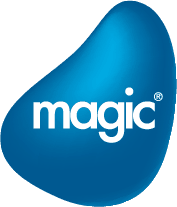Earlier this year, when IBM i development tool maker Magic Software Enterprises turned in some explosively growing financials, we commented that the company, which was flush with cash, might soon be on the prowl for acquisitions because of that hoard. And indeed it was. Last week, Magic Software shelled out $17 million to acquire the AppBuilder product line and customer base from BluePhoenix Solutions.
While it is perceived as being mostly a vendor of IBM mainframe development tools, BluePhoenix sells tools that work on other platforms. The AppBuilder workbench is a code generator that can spit out code for Java application servers and Web servers, or a mainframe CICS/IMS or WebSphere stack, or for Windows, AIX, or HP-UX systems back-ended by SQL Server, Oracle, or DB2 databases. AppBuilder can generate code in COBOL, Java, C#, XML, or HTML.
“The acquisition of AppBuilder will enable Magic Software to further expand and enhance its portfolio of products, strengthening its standing as a global provider of application development platforms,” said Guy Bernstein, Magic Software’s CEO, in a statement. “We will develop and invest in all aspects of AppBuilder’s activity, and will increase support for its customers, enabling them to benefit from a powerful vision for the future.”
It’s not clear yet how AppBuilder will fit in with the existing uniPaaS and iBOLT tools from Magic Software. The answer might be to keep separate things separate and keep existing customers happy and gradually share technologies where appropriate. (This strategy sure works for Oracle, which has rarely met a software company it didn’t want to eat.)
Back in 2007, BluePhoenix wanted to expand its footprint in the IBM i market and so it bought ASNA, which makes a line of application modernization products for the IBM i platform. By January of this year, ASNA employees did a management buyout of the company, splitting from BluePhoenix and going back to its independent ways. And now Magic has picked up the AppBuilder business from BluePhoenix. Magic Software is publicly traded on the Tel Aviv Stock Exchange in Israel, but it is actually majority owned by Formula Systems, which in turn was acquired by Asseco Group, the largest IT provider in Poland and a company that is traded on the Warsaw Stock Exchange.
You need a flow chart with a time scale to keep track of all of these changes, and Magic Software is like the inside of a matryoshka doll. As is turns out, Magic Software, which was struggling several years ago to get profitable and to hold revenues, has done a dramatic turnaround. And Asseco Group is a much larger and more importantly, decently profitable software conglomerate.
Asseco Group is now the seventh largest software company located in Europe, with €516 million in software sales out of a €808 million in total sales in 2010, which netted the conglomerate €103 million in net profit. While Asseco Group is significantly behind SAP, with its €12.3 billion in software sales in 2010, it is within striking distance of CAD and product lifecycle management software maker Dassault Systemes at €1.5 billion in sales and SAGE Software at €1.5 billion in sales last year as well.
Last week, Magic Software reported its sales for the third quarter ended in September. Revenues in the quarter were up an impressive 34 percent to $30 million, and net income was up 60 percent to $4.1 million. Parent company Asseco Group is bringing 12.7 percent of revenue to the bottom line and child company Magic Software is bringing 13.4 percent, so the child is contributing its table money and then a little more. This is the eighth consecutive quarter of revenue growth for Magic Software, by the way. The company was sitting on $35.1 million in cash as the September quarter came to a close, so it still has room to do an acquisition the size of the AppBuilder biz deal it just did if the company is so inclined.
And with these kind of numbers, it is also possible that someone else makes a bid for Magic Software. As The Four Hundred went to press on Friday, Magic Software had a market capitalization of $191.4 million, so such an acquisition would not be cheap.
Click for the Online version
